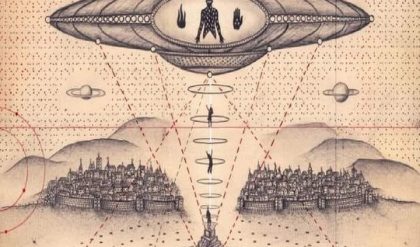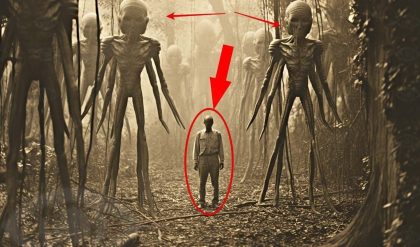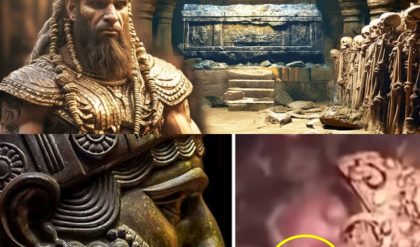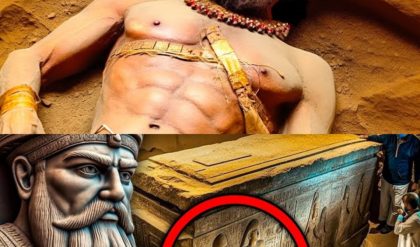In a series of events that some see as more than mere coincidence, German archaeologists made headlines by announcing the discovery of what they believed to be the tomb of Gilgamesh, the legendary Sumerian king of Uruk. Just five months after this groundbreaking announcement, Iraq was invaded, leading to speculation about whether the two events were connected.

The Discovery of Gilgamesh’s Tomb
In early 2003, a team of German archaeologists claimed to have uncovered the tomb of Gilgamesh during an excavation near the ancient city of Uruk, located in modern-day Iraq. The site was identified based on ancient texts and satellite imagery, which revealed an extensive network of what appeared to be ancient structures beneath the sand.
Tomb Details: According to reports, the tomb contained a large, sarcophagus-like structure and various artifacts that matched descriptions of the legendary king’s burial site as described in the “Epic of Gilgamesh.” The epic, which is one of the oldest known literary works, describes Gilgamesh as a demigod with extraordinary strength and wisdom, ruling over Uruk in ancient Sumer.
Global Interest: The announcement drew significant attention from historians, archaeologists, and the general public. The prospect of uncovering the tomb of a figure so central to ancient mythology and literature was seen as a potentially revolutionary find, capable of shedding new light on early human civilization.
The Invasion of Iraq
Just months after the announcement, in March 2003, the United States, along with a coalition of allies, invaded Iraq. The official reasons given for the invasion were concerns over weapons of mass destruction (WMDs) and the need to remove Saddam Hussein from power. However, the timing of the invasion so soon after the discovery of Gilgamesh’s tomb has led to various theories and speculation:

Cultural Heritage Concerns: Some have speculated that the invasion was partly motivated by the desire to control Iraq’s rich archaeological sites and artifacts, including the newly discovered tomb. Iraq is home to many of the world’s most significant ancient sites, and the potential value of artifacts, both historically and financially, cannot be underestimated.
Conspiracy Theories: Various conspiracy theories have emerged, suggesting that the true reason behind the invasion was related to the discovery of Gilgamesh’s tomb. These theories range from the idea that the tomb contained ancient technologies or secrets that powerful entities wanted to control, to the notion that the invasion was part of a larger plan to rewrite history or gain access to hidden knowledge.
Destruction of Cultural Heritage: The invasion led to widespread looting and destruction of cultural heritage sites across Iraq, including museums and archaeological digs. Many invaluable artifacts were stolen or destroyed, leading to an irreplaceable loss of cultural history.
The Legacy of the Tomb Discovery
Unresolved Mysteries: Despite the initial excitement, the actual contents and significance of the tomb have remained largely unresolved, partly due to the instability in Iraq following the invasion. Ongoing conflict and security concerns have made it difficult for archaeologists to continue their work, leaving many questions unanswered.
Impact on Archaeology: The invasion and subsequent looting have had a devastating impact on Iraq’s archaeological sites. Many scholars believe that priceless historical knowledge was lost or irreparably damaged during this period. The fate of the Gilgamesh tomb and the artifacts reportedly found there remains uncertain.
Conclusion
The discovery of Gilgamesh’s tomb by German archaeologists, followed closely by the invasion of Iraq, has become a focal point for speculation and debate. While the official narrative of the invasion focuses on geopolitical concerns, the proximity of these two events continues to fuel theories about hidden motives and the untold stories buried beneath the sands of Iraq. Whether connected or not, the story of Gilgamesh’s tomb serves as a reminder of the fragile relationship between cultural heritage and global politics.





